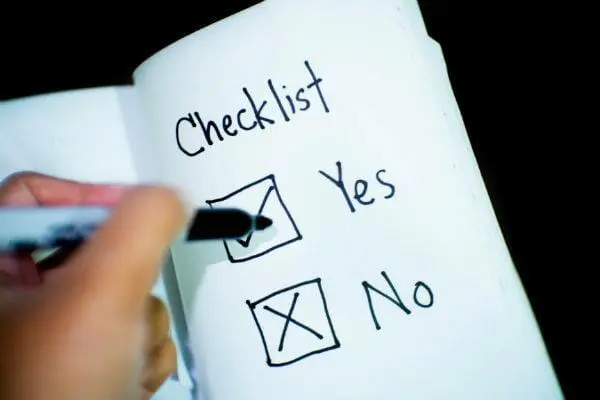Did you know that by 2022, half of your hospitality's money will come from online bookings? It's true! As those bookings come in fast and hot, you're going to need a way to process them. Enter the booking engine.
A booking engine is just a piece of software that manages your online bookings. We've talked to FreeToBook on our YouTube channel before, and other engines like KWHotel and Qlo offer similar services. No matter what engine you choose, you'll need it to perform some basic functions. I took inspiration for this blog from NetAffinity, and I encourage you to check them out too. Here are my personal tips for finding and picking a booking engine.
1. Make sure it serves your customer
 This is basic, but it bears repeating anyway. Don't just trust the technology. If your booking engine doesn't work, even in a small way, your customers will flee and never return. After all the work you put into wooing them on social media, leading them around the OTAs, and guiding them through your website, don't lose those bookings because your engine is flawed! Before you commit to a booking engine, use it yourself. If there are things about it that don't work, or just strike you as confusing, then don't use that booking engine. There are plenty of fish in the sea. Try several before you decide on one.
This is basic, but it bears repeating anyway. Don't just trust the technology. If your booking engine doesn't work, even in a small way, your customers will flee and never return. After all the work you put into wooing them on social media, leading them around the OTAs, and guiding them through your website, don't lose those bookings because your engine is flawed! Before you commit to a booking engine, use it yourself. If there are things about it that don't work, or just strike you as confusing, then don't use that booking engine. There are plenty of fish in the sea. Try several before you decide on one.
When you try booking engines, think like a customer. One thing that Q4Launch points out is that a booking engine needs to be secure. Make sure that it offers SSL encryption. The last thing you want is to have to notify your customers to change their bank cards due to a data theft incident.
2. It needs to work well on mobile
 Need I say more? At this point in the digital revolution, almost half of your customers are finding you on their mobile devices. Don't expect that number to go down! You can choose a mobile-friendly booking engine now, or you can re-do all your hard work in a couple years, after your un-mobile-friendly engine has cost you thousands in lost reservations. Bite that bullet now. This is another situation where it pays to test your booking engine before you commit to it.
Need I say more? At this point in the digital revolution, almost half of your customers are finding you on their mobile devices. Don't expect that number to go down! You can choose a mobile-friendly booking engine now, or you can re-do all your hard work in a couple years, after your un-mobile-friendly engine has cost you thousands in lost reservations. Bite that bullet now. This is another situation where it pays to test your booking engine before you commit to it.
As a side note, fast loading is critical to the effectiveness of a mobile-friendly booking engine. Divya Bhat at Hotelogix points out that a whopping 32% of bookings attempted on a mobile device are abandoned because of slow load time. This is probably the easiest factor under your control. As you're testing, have a stopwatch at the ready. If your booking engine takes more than 5 seconds to load each screen, find a new booking engine.
3. It has to work with your channel manager
 If only all of your bookings could come to you through your website. I've dedicated my career to making the direct booking magic happen for you! However, the OTAs still control a very large share of the booking market, and most hospitalities are just going to have to play nice with them if they want any business. This means that any booking engine you use has to integrate with your channel manager. No matter where your guests book, whether with one of your OTAs or through your website directly, you need to make sure that you don't sell the same room to different parties at the same time.
If only all of your bookings could come to you through your website. I've dedicated my career to making the direct booking magic happen for you! However, the OTAs still control a very large share of the booking market, and most hospitalities are just going to have to play nice with them if they want any business. This means that any booking engine you use has to integrate with your channel manager. No matter where your guests book, whether with one of your OTAs or through your website directly, you need to make sure that you don't sell the same room to different parties at the same time.
If your booking engine can't keep track of what rooms are available, you'll eventually lose clients.
4. Make sure you can customise the look and feel
Your booking engine should look like your website. You should be able to feature upsells and tie-ins to your social media, not to mention other tweaks that will enhance your customer's willingness to convert. Think photos, testimonials, and reviews!
Most of all, a guest shouldn't feel like they're being shepherded through a soulless transaction. They're booking with a small, independent hospitality because they want a personal experience. Give it to them!
5. You want analytics – LOTS of analytics!
 Remember my earlier article about bounce rate? When people leave your website, you want to know the exact circumstances of their departure. When did they leave? From what page? And how many other people left your website in the same way?
Remember my earlier article about bounce rate? When people leave your website, you want to know the exact circumstances of their departure. When did they leave? From what page? And how many other people left your website in the same way?
This is exactly why you need to have access to analytics for your booking engine as well as your site. Without analytics, you may find yourself in a situation where your website is perfect, but customers fail to convert once they're on your booking engine. And you'll never know why!
On the flip side of that coin, you'll find that access to analytics gives you a chance to track trends in customer habits that might otherwise be hard to see.
Numbers may look intimidating, but I assure you that they're gold.
Now that you know something about choosing a booking engine, it's time to go out and start looking for one to call your own. Whether you go with a free service like FreeToBook or a paid engine, you now know enough to choose software that fits your exact needs.
If you still feel lost, send me an email at [email protected].



